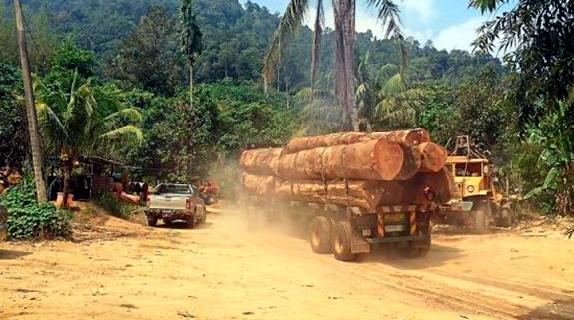PETALING JAYA: Deforestation is one of the many problems facing the environment, while logging activities pose a threat to wildlife and the livelihoods of indigenous communities.
Data from Global Forest Watch (GFW), an online platform that monitors forests, showed Malaysia lost 2.7 million hectares of primary forests between 2002 and 2020.
This accounted for the loss of 34% of the country’s total tree cover during the period. The total area of Malaysia’s primary forests also shrank by 17%.
Environmentalists said while replanting efforts by corporate entities and activists are to be applauded, Malaysia is still far behind in terms of forest preservation.
Environmental organisation EcoKnights vice-president Amlir Ayat said recently that the figures mentioned in the GFW report “are not surprising”.
“Between 2002 and 2020, Malaysia experienced several economic problems that led to significant logging, which is a quick income earner.
“Increasing demand for housing and agricultural products to fill the demands of a growing population has also led to a sharp increase in deforestation,” he said.
Eco-tourism and Conservation Society Malaysia chief executive officer Andrew Sebastian echoed the sentiment, stressing the need for more planned and coordinated educational efforts to be carried out, perhaps led by the state government.
“Such efforts may significantly improve the motivation for logging concessionaires to replant deforested areas that have been logged,” he said.
“The primary stakeholder is the state that approves the permit. It must first properly plan to protect primary forests from climate change and preservation of water catchment areas that support a community.
“The state must restore forests that have been degraded and permit logging only outside natural forests. Similarly, logging concessionaires must replant trees that have been lost,” he added.
Amlir also warned on the possible negative impacts if tree-planting activities are not carried out responsibly.
“Corporate sectors whose operations have a direct negative impact on forests should be responsible to ensure the forests they clear are replaced.
“They should not achieve this by merely preserving another forest that exists or replanting trees from other forests. Replanting should be done by transferring as many seedlings as possible from forested areas which are marked for clearing.
“Replanting projects that involve seedlings from forests which are not going to be cleared or were already being sustainably managed will not serve any purpose as the seedlings will survive there anyway,” he said.
However, environmental advocate Mohd Rashdan Abd Rashid expressed optimism that current awareness programmes would benefit youths in the long term.
He said the Malaysian Rubber Council’s recent programme to plant 2,022 trees with students from Universiti Tengku Abdul Rahman Kampar is praiseworthy.
“Their practice is in line with the Sustainable Development Goals 2030 that includes engaging with experts from Seeds Malaysia and the Tropical Rainforest Conservation and Research Centre to create the first food forest.
“The project will be assessed for two years to calculate the carbon footprint and empower the community in Kampar as it heads towards 2030,” he said.










